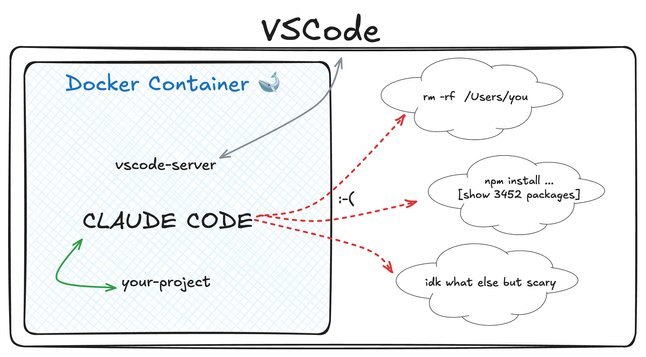#code
Ich unterlasse dazu mal jeglichen Kommentar…
»#Code-KI gerät in #Panik und löscht absichtlich gesamte #Datenbank:
Das KI-Tool, das beim #Programmieren unterstützen soll, hat über 2.400 #Daten'sätze gelöscht. Man könnte meinen, ein Vorteil von #KI-Systemen sei, dass sie im Gegensatz zu #Menschen nicht emotional reagieren und deshalb bessere Entscheidungen treffen. Doch wie ein aktueller Vorfall zeigt, braucht es keine #Emotionen, um gravierende #Fehler zu machen.«

Mais quelle idée de récupérer en masse le HTML de pages #BNF ! on trouve de ces commentaires...
the other side
In the long run, GPL code becomes irrelevant (2015)
https://josephg.com/blog/in-the-long-run-gpl-code-becomes-irrelevant/
Step 1: Write R code
Step 2: Share it
Step 3: Spend 2 hours helping someone install R and troubleshoot their environment
OR
Step 1: Write R code
Step 2: webR sharelink
Step 3: Profit
Working with some ancient code (like 15+ years old) and the developer has used the letters "CNT” as an abbreviation for the word “content" in hundreds of places but my brain keeps misreading this and I don't know whether to laugh or berate myself
Anthropic tightens usage limits for Claude Code – without telling users

Sudden whimsy: If you #steganographically embed a message somehow in sea-urchin roe, is that #uni #code?
JWTs Are Not Session Tokens , Stop Using Them Like One
When JSON Web Tokens (JWTs) hit the mainstream, they were hailed as the solution to everything wrong with session management. Stateless! Compact! Tamper-proof! Suddenly, everyone started stuffing them into every web app like ketchup on bad code.
AI coding tools make developers slower, study finds
Artificial intelligence coding tools are supposed to make software development faster, but researchers who tested these tools in a randomized, controlled trial found the opposite.
https://www.theregister.com/2025/07/11/ai_code_tools_slow_down/

https://www.europesays.com/2239905/ Maxi incidente a Jesolo: due motociclisti veneti sono morti, almeno tre i feriti #accaduto #AccadutoRotonda #AccadutoRotondaBennet #adriatico #Auto #Code #feriti #incidente #Italia #italy #jesolo #moto #motociclisti #notizie #rotonda #Traffico
PRIVACY FOLKS: Stop fucking forgetting about accessibility. People with disabilities deserve privacy too - and in fact probably need it more than you do.
Signed,
So fucking tired of not being able to use privacy focused alternatives to apple and google, their native aps for various things from email to navigation, and suchlike.
busybee: Code: rss2discord https://beesbuzz.biz/code/12590-rss2discord #Discord #Tools #Code #RSS

I've been using Claude Code, and I like it. It's produced decent code and configuration files and everything, but I've only so far used it for "evergreen", fully vibe coded projects. So having Claude start from scratch.
Meanwhile, I *have* used Cursor on existing projects to add features, fix bugs, and add tests. And I found that to work pretty well too.
The problem I have is that with Cursor, I can see the diffs of the code in my editor, step by step, and approve or deny individual changes.
With Claude, it seems like it just prints a diff in the console and I have to accept or reject the whole thing there, with no context of the rest of my project, and no ability to tweak it.
Am I just doing something wrong? Is this the reason to stick to Cursor?
Looking for insights.
I know I'm late to the party on this, but when people say "headless CMS" do they kinda mean the database part of the "database publishing" of 20 years ago?
Like it is storing content separately from the HTML/CSS or app interface so one doesn't have to munge that stuff when making content, or munge content when making a site or app or something, right?
Or is there some new magic in "headless CMS" I'm missing?
"We ran a randomized controlled trial to see how much AI coding tools speed up experienced open-source developers. The results surprised us: Developers thought they were 20% faster with AI tools, but they were actually 19% slower when they had access to AI than when they didn't."



